
Rice, Baylor part of research effort to advance genome editing
Researchers from Rice University and Baylor College of Medicine are part of a national effort to accelerate genome-editing research and develop gene-editing technologies and therapies.

Rice, Baylor part of research effort to advance genome editing
Researchers from Rice University and Baylor College of Medicine are part of a national effort to accelerate genome-editing research and develop gene-editing technologies and therapies.

Houston Methodist, Rice U. launch neuroprosthetic collaboration
Rice and Houston Methodist are partnering to solve clinical problems with neurorobotics at the new Center for Translational Neural Prosthetics and Interfaces, a collaboration that brings together scientists, clinicians, engineers and surgeons.
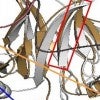
Cancer ‘guardian’ breaks bad with one switch
A mutation that replaces a single amino acid in a potent tumor-suppressing protein makes it prone to nucleating amyloid fibrils implicated in many cancers as well as neurological diseases.
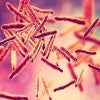
Study could explain tuberculosis bacteria paradox
Tuberculosis bacteria have evolved to remember stressful encounters and react quickly to future stress, according to a study by computational bioengineers at Rice University and infectious disease experts at Rutgers New Jersey Medical School.
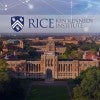
Kennedy Institute adds data scientist for COVID-19 research
Rice's Ken Kennedy Institute is collaborating with the University of Texas MD Anderson Cancer Center on data science research into long-term outcomes and improved treatment methods for COVID-19.

Brain-to-brain communication demo receives DARPA funding
Wireless linkage of brains may soon go to human testing with $8 million for preclinical demonstrations.
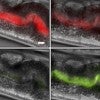
Light flips genetic switch in bacteria inside transparent worms
Researchers from Rice University and Baylor College of Medicine have shown that colored light can both activate and deactivate genes of gut bacteria in the intestines of worms. The research shows how optogenetic technology can be used to investigate the health impacts of gut bacteria.
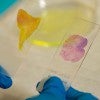
AI-powered microscope could check cancer margins in minutes
Researchers from Rice University and MD Anderson Cancer Center have created a microscope that uses artificial intelligence to quickly and inexpensively image large tissue sections at high resolution with minimal preparation. If clinically validated, the DeepDOF microscope could allow surgeons to inspect tumor margins within minutes.
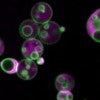
Hidden structure found in essential metabolic machinery
Rice University biochemists have discovered membrane-divided subcompartments within organelles called peroxisomes, essential pieces of metabolic machinery for all higher order life from yeast to humans. The research appears this week in Nature Communications.
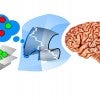
AI helps scientists understand brain activity behind thoughts
Researchers from Baylor College of Medicine and Rice University have developed artificial intelligence models that help them better understand the brain computations that underlie thoughts.
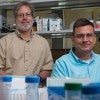
Study: Early, late stages of degenerative diseases are distinct
Rice University biochemists have proposed that degenerative diseases as varied as Alzheimer's, Parkinson's and muscle atrophy occur in two distinct phases marked by protein signaling changes that could result in patients responding differently to the same treatment.

'It takes more than science': Medical Humanities Program flourishes at Rice
Program’s popularity grows as more medical schools recognize need for humanity in health care.

Musicians may need more than social distancing to stay safe on stage
Keeping musicians safe while they're on stage during the pandemic may require more than just social distancing, according to a study of exhaled aerosols conducted by Rice University engineers and musicians from Rice's Shepherd School of Music and the Houston Symphony.

The heat is on for building 3D artificial organ tissues
Bioengineers at Rice and the University of Washington are devising a hot new technology to remotely control the positioning and timing of cell functions to build 3D artificial, living tissues.
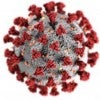
Rice computer science lab collaborates on design of novel SARS-CoV-2 test
Rice computer scientists are collaborating with molecular diagnostics company Great Basin Scientific to streamline the development of COVID-19 testing.